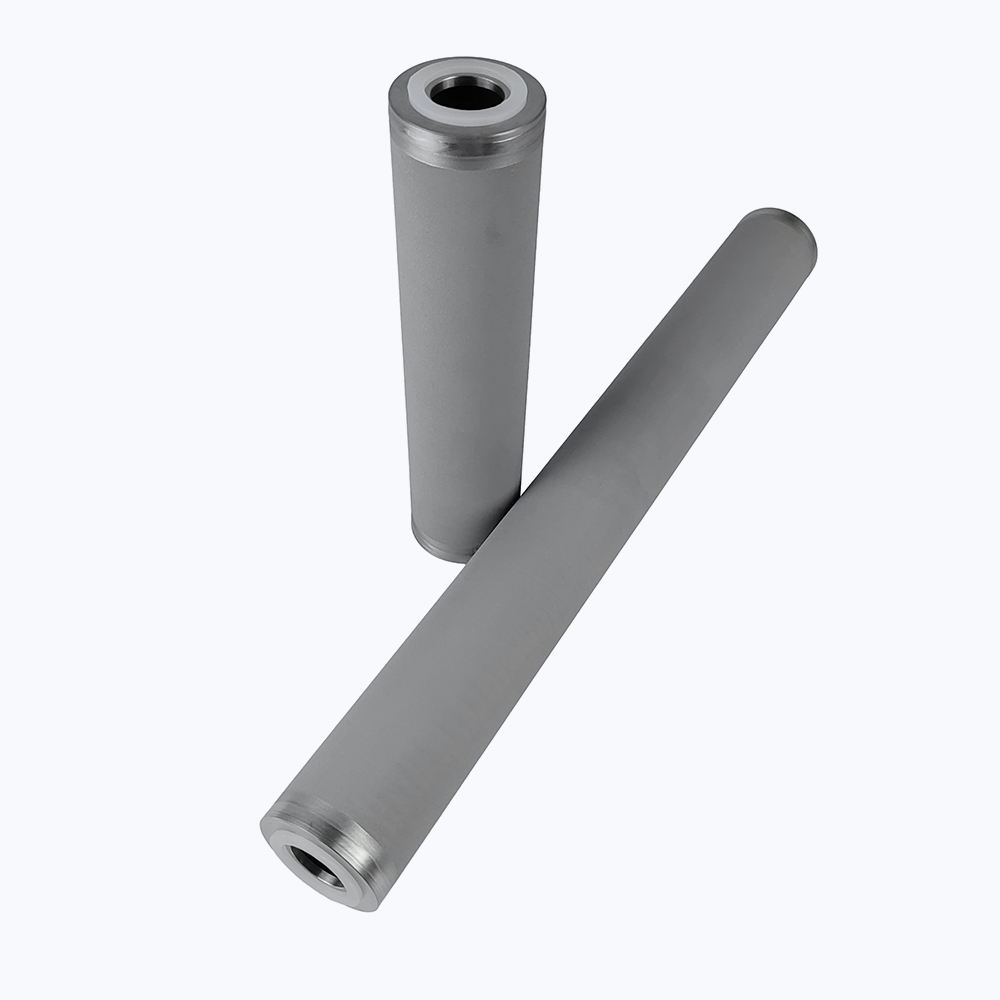What is porous filter
- Understanding Porous Filters: A Comprehensive Guide
- What is a Porous Filter?
- Structure and Functionality
- The Manufacturing Process
- Key Applications in Industry
- Advantages of Using Porous Filters
- Lvyuan’s Commitment to Quality
- FAQs
- What materials are porous filters made from?
- How do porous filters improve air quality?
- Can porous filters be cleaned and reused?
- What factors affect the choice of porous filter?
- Conclusion: Partnering with Lvyuan for Porous Filter Solutions
Understanding Porous Filters: A Comprehensive Guide
Delving into the realm of filtration technology, porous filters stand as a cornerstone in various industries, owing to their versatility and efficacy. As a prominent player in the market, Lvyuan provides state-of-the-art sintered metal filters, among other filtration solutions. Let’s explore what porous filters are, their applications, and why they are essential in modern industrial processes.
What is a Porous Filter?
Porous filters are designed to allow fluids or gases to pass through a permeable medium while capturing contaminants. These filters are characterized by tiny pores that trap particles, ensuring the purity of the downstream fluid. Lvyuan offers an extensive range of porous filters that excel in various environments, from harsh chemicals to everyday water filtration systems.
Structure and Functionality
Porous filters consist of a matrix with interconnected pores. The pore size can be adjusted depending on the application, making them incredibly versatile. At Lvyuan, our sintered metal filters demonstrate robust construction, enabling them to withstand high pressures and temperatures. This adaptability makes porous filters ideal for a multitude of industrial applications.
The Manufacturing Process
Producing a porous filter involves several advanced techniques. Sintering is one such method used by Lvyuan, where metal powder is compacted and heated below its melting point to form a solid structure. This process ensures that the filters are durable and efficient. The customization capabilities at Lvyuan allow for precise control over pore size and distribution, catering to specific client needs.
Key Applications in Industry
Porous filters find their utility across a vast spectrum of industries. In the food and beverage sector, these filters help in ensuring product purity by removing impurities and contaminants. They are also essential in the petrochemical industry for separating crude oils and other substances. Lvyuan’s expertise in porous filter technology ensures that our products perform optimally across various sectors, including medical, health, and electronics.
Advantages of Using Porous Filters
1. Efficiency in Filtration: The primary advantage of porous filters is their ability to efficiently remove particulates from liquids or gases without compromising flow rates.
2. Durability and Longevity: Sintered metal filters from Lvyuan are renowned for their durability, offering extended service life compared to traditional filters.
3. Versatility: Available in a range of materials and configurations, porous filters are adaptable to a myriad of operational environments.
4. Cost-Effective: With reusable options, porous filters provide a cost-effective solution to ensure high-quality filtration in various applications.
Lvyuan’s Commitment to Quality
Lvyuan prides itself on delivering superior filtration products that meet and exceed international standards. Our sintered metal filters are not only CE, ROHS, and SGS certified, ensuring reliability and safety, but they also reflect our commitment to innovation and quality.
FAQs
What materials are porous filters made from?
Porous filters can be made from metals, ceramics, or polymers, with sintered metal being particularly popular for industrial applications due to its robustness.
How do porous filters improve air quality?
By trapping airborne particles, porous filters enhance air quality, crucial in medical and electronic applications for maintaining a contaminant-free environment.
Can porous filters be cleaned and reused?
Yes, many porous filters are designed to be cleaned and reused multiple times, making them an economical choice for long-term filtration needs.
What factors affect the choice of porous filter?
Considerations include the type of fluid, temperature, pressure conditions, and specific contaminant size to be filtered.
Conclusion: Partnering with Lvyuan for Porous Filter Solutions
Lvyuan stands as a leader in porous filter technology, equipped to provide custom solutions that cater to a variety of industrial demands. Our dedicated team continues to drive innovation, ensuring every product delivers unmatched performance and reliability. As we look to the future, Lvyuan remains committed to advancing filtration technology to better serve our global clientele.

The Ultimate Guide to Stainless Steel Mesh Tube Filters for Industrial Filtration
China SS Bag Filter Housing: Everything You Need to Know
Custom sintered filter Manufacturers and suppliers
Discover What Substances Can Sintered Metal Filters Filter - Lvyuan
Sintered Titanium Filters
What Micron Ratings Are Available for Sintered Titanium Filters?
Sintered titanium filters are available in a wide range of micron ratings and configurations, offering tailored solutions for optimal performance across diverse applications.
What is the Lifespan of Sintered Titanium Filters?
With proper care and maintenance, sintered titanium filters can last up to 30 years, providing a durable and cost-effective solution for filtration needs.
Metal mesh filters
Can sintered wire mesh filter be customized?
Yes, sintered wire mesh can be customized in terms of material, pore size, thickness, and dimensions to suit specific filtration requirements. Customization allows for optimal performance in diverse applications.
What maintenance is required for sintered wire mesh filter?
Regular cleaning is the primary maintenance for sintered wire mesh. The cleaning frequency depends on the application and the type of contaminants being filtered. Follow the manufacturer's guidelines for proper maintenance.
Stainless Steel Cartridge Filter Housing
What maintenance is required for stainless steel cartridge filter housings?
Regular maintenance tasks for stainless steel filter housings may include replacing filter elements, cleaning or replacing gaskets and seals, inspecting for leaks or corrosion, and ensuring proper operation of valves and controls.

Sintered metal tube

Sintered powder metal filters

Bag filter housing

Sintered wire mesh filter

Stainless steel multi cartridge filter housing

Sanitary filter housing

stainless steel filter water

Stainless steel pleated filter cartridge
© 2024 Lvyuan All Rights Reserved. | Privacy policy • Terms and conditions

